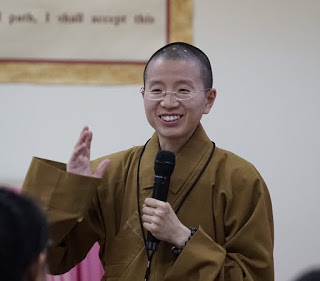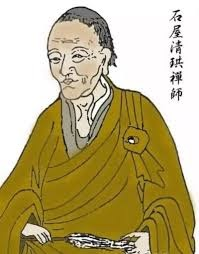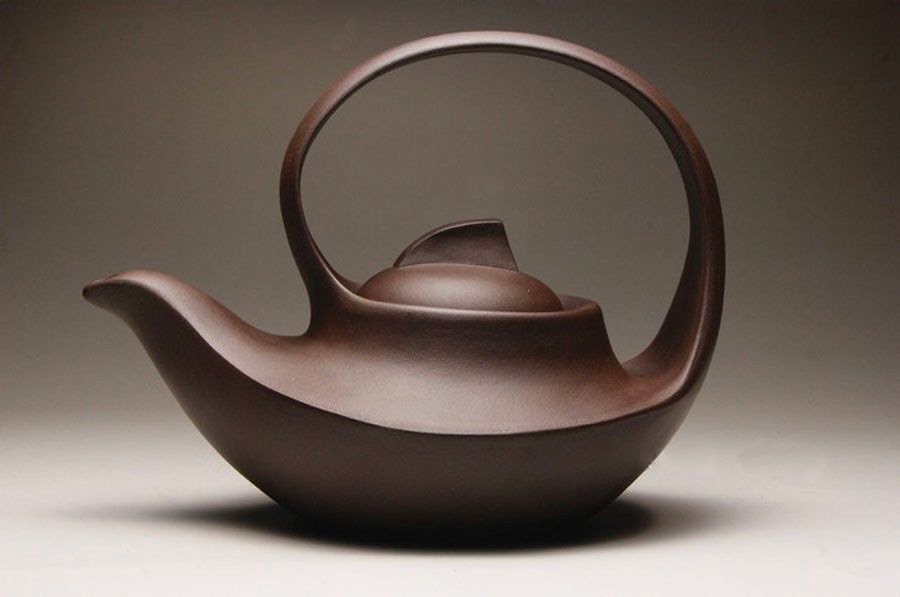
Speaker: Venerable Zhixing
Fo Guang Shan Hsi Lai Temple, Los Angeles
I. Introduction
Auspicious greeting to all friends from around the World! This is Ven. Zhixing from Fo Guang Shan Hsi Lai Temple in Los Angeles, United States. Thank you for joining our online English Dharma service. Although we are at different parts of the world, this online Dharma service has brought us all closer together in spirit.
Amid the COVID-19 pandemic, we are asked to stay at home and a lot of our plans are canceled. We cannot hang out with our friends. We cannot travel or visit family and relatives. We cannot gather for any social events. We cannot go to the temple to participate activities or Dharma services. We cannot go to school. We cannot go shopping, or even grocery shopping. Basically, we can’t do anything that we consider would give us happiness.
What is true happiness? Is it doing things that we like? Is it satisfying our desires such as eating good food? Hanging out with friends? Partying? Traveling? There is no doubt that we feel happy while we are doing all these things. However, this happiness never seems to last. So what is true happiness? It is a question that most of us have been asking ourselves or a question that have led us into a journey of searching. It is indeed a meaningful question that we can contemplate and reflect upon while we are staying at home because happiness is what everyone of us seeks throughout our life.
II. What is Happiness?
Venerable Master Hsing Yun said that there are different levels in happiness:
1. The first level of happiness is satisfying our desires for material possessions and wealth such as owning a car, having a house, having a great career, enjoying great food and so on. This is the first level of happiness.
2. The second level is to establish good relationships with others like nurturing a loving family, forming good relationship with friends, working well with colleagues and so on. That’s the second level.
3. The higher level is to discover our original self within our mind, nurture a compassionate, joyful, and grateful mind, as well as have faith. If we cultivate this in our daily life, the joy we have from simplicity, and from the ease in mind is the higher level of happiness.
What Venerable Master mentioned about the higher level of happiness, a happiness that last, can also be seen from the following dialogue between Chan Master Shiwu and a thief.

- One night, Chan Master Shiwu (石屋禪師) heard some noise outside his room. He asked, “Who is there?”
A person actually answered, “ I am a thief.”
The Master caught him and questioned, “How many times have you stolen?”
The thief answered, “I didn’t count the number of times. Maybe hundreds and thousands of times.”
Chan Master asked, “How long does your happiness last each time you steal?”
“It depends on the value of the things that I steal.” The thief answered.
Chan Master asked again, “How long is the longest time you can be happy for?”
“Only for a few days, then I am not happy again.”
Upon hearing the answer, Chan Master laughed, “You’re not much of a thief! If it were me, I just need to steal once and I can be happy for the rest of my life.”

- “Excuse me for underestimating you,” said the thief, astounded. “You are more experienced than I am. Please, will you teach me how to steal?”
Chan Master Shiwu suddenly stretched out his hand toward the thief’s heart as if he was grabbing something from his chest and asked, “Don’t you have a huge treasure right here? After I steal the treasure from here, I’ll enjoy them for the rest of my days.”
This conversation between the Chan Master and the thief told us that happiness cannot be found from the outside, but it is all within our heart. Only by seeking within and mastering our minds can we enjoy happiness for as long as we live.
III. How Do We Seek True Happiness?
This then begs the question of what are we seeking within our mind to gain happiness? In another word, how do we seek true happiness?
First, we should have gratitude. In positive psychology research, researchers discovered that gratitude is strongly and consistently associated with greater happiness. Gratitude helps people feel more positive emotions, improve their health, deal with adversity, and build strong relationships. As Venerable Master Hsing Yun said, “A grateful life is a happy life. Gratitude is the source of happiness.”
There are a lot that we should be grateful for. In this COVID-19 pandemic, although we are ordered to keep social distancing, we are still connected together through online social media. We are still safe at home. We have a chance to do the chores that we never seem to have time to do. We have the time to cook a meal and enjoy it with our family. We have a chance to spend some time with loved one and really communicate with them.
Most importantly, we should be grateful for being able to breath the air in the environment freely. Looking at the symptoms of the COVID-19, being able to breath air without obstruction is a luxury that we have been taking for granted.
Once, the Buddha asked his disciples, “How long is life?” A disciple answered, “a week?” The Buddha answered, “no.” “Is it in between a meal?”, the Buddha answered, “no.” again. Finally, one disciple asked, “Is it in between a breath?” The Buddha said, “Indeed, life is in between a breath.” Thus, how can we not be grateful that we can breathe fresh air every single moment?
Second, we should learn to let go of our attachments and desires because the Buddha told us that desires is the source of suffering. We all have different desires. Some people are attached to wealth, others might be attached to fame, power, delicious food, car, jewelry and so on. Our desires motivate us to work hard for them. Once we attain what we want, we would have fear that we might lose them or we hope for even more or become angry when we don’t get them. We end up exhausting ourselves from working for what we desire and trap in this cycle of emotion roller coaster.

Once there is a General of the army who is very attached to his tea pot. Every day, he would take it out and make tea with it. One day, as he was making tea, he accidentally knocked it down the floor. He broke into cold sweat and caught it at the last moment.
He then asked himself. I am a general in the army. I don’t even break a sweat or have fear at war. Why did I break into cold sweat when I saw that my tea pot was dropping on the ground?
This is when he realized that it is because of his attachment to the teapot. This attachment is controlling his emotions. With this realization, he broke the teapot into pieces. If we want to have happiness, we need to learn to let go of our attachments and desires. Otherwise, our emotions are controlled by them, and suffering will follow.
In addition to letting go of our attachment and desires, we should also learn to let go of the burden we carry in our mind. These burdens might be remorse, anger, sadness, agitation and other defilements. No one can let go of these burdens for us except for ourselves. If we continue to hold on to them, they will hinder us from moving forward or they will make our life miserable.

This is like a monkey who discovered a banana inside a coconut through peeking into a hole on the coconut. He put his hand in the hole to grab the banana and tried to take it out. However, the banana doesn’t fit the hole. The monkey’s hand then became stuck inside the coconut because he refused to let go of the banana. Ultimately, the monkey died of hunger. We might think that the monkey is silly. However, if we reflect upon ourselves, how often do we continue to carry all these burdens even though we know that they are not good for us or they are hurting us?
We should know that whether we live happily or live with suffering is only a matter of one thought, whether we are willing to let go. Just like the monkey, if he is willing to release the banana, he can then take out his hand and find so many other bananas.
Third, we should understand that everything will come to pass. Whether it is a joyous occurrences or something that gives us hardship and difficulties, they will all come to pass. Just like this pandemic, it will also come to pass. We need to accept that it is happening right now, and it is affecting our life in every aspect. Instead of repelling against the current situation and feel sad or angry about it, we should work with the current situation like staying at home, washing our hands frequently, and wear face mask if we really have to go out. The more that we reject this adversity, the more afflictions and suffering we would have. Slowly, our mind will be filled with negativity.
Instead, we should change our perspectives in facing the pandemic and think positive. Venerable Master Hsing Yun told us that we can treat the time that we stay at home as a retreat to self-reflect and cultivate. Always remember that no matter how difficult this situation is, it will come to an end.
Last, we should learn to give. Venerable Master Hsing Yun said, that the wealthiest person is one who gives. We might then wonder how can we give now that we can only stay home. The best gift that we can give right now is giving each other space and keep our social distancing. By staying at home, we are protecting ourselves and others from the transmission of the COVID-19 coronavirus. We are helping with containing the pandemic.
Another thing that we can give is to dedicate our merit and pray for the world. Our thoughts have power in them. A Japanese scientist and water researcher Dr Masaru Emoto has done research on the effect of wholesome and unwholesome words on molecular structure of water. He revealed that thoughts and vibrations affect the molecular structure of water. The water crystals formed beautiful geometric shapes when words of love and gratitude were spoken near the water. However, when unwholesome words were uttered near another sample of water taken from the same source, the crystals smashed and turned into destructed shapes. Therefore, dedicating our merit and praying for the world will help. Of course, if we have the ability, we can also give food to food bank to help those in needs or donate medical face masks to the hospital.
III. Conclusion
To conclude, we asked ourselves again, “Where is happiness? Can we only find it from the external conditions or from others?” The answer is we don’t need to seek happiness from the outside, but we should seek within. It’s all in the mind. If we can have gratitude in our heart, learn to let go of our attachments, desires and all the burdens that we carry with us, understand that things will pass and be at ease with the current causes and conditions, and give with what we can, we will be happy and content. We will be at ease in our life.
Last, but not least, thank you for joining us in this cultivation session. May Buddhas and Bodhisattvas bless everyone with happiness and peace. May everyone be safe and well. Omitofo.
